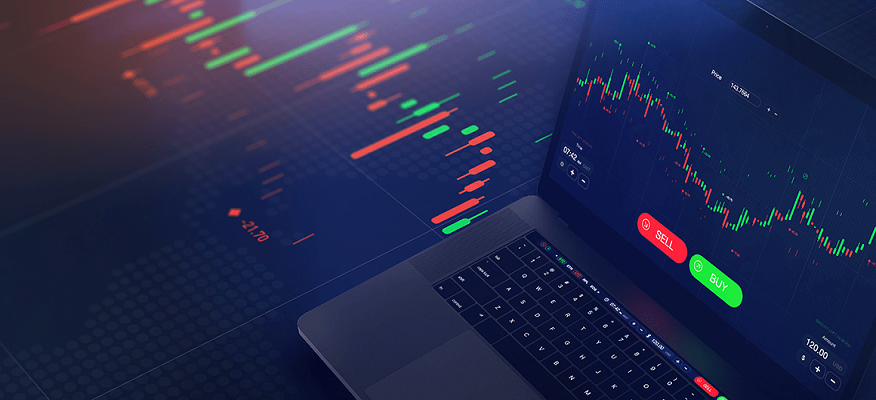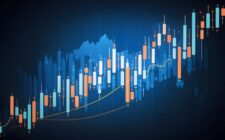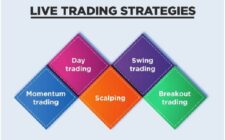Introduction
In the dynamic world of finance, keeping a close eye on global stock indices has become imperative for investors seeking to make informed decisions. Delve into the current state of global stock index today, explore the benefits of indices trading demo accounts, and shed light on the significance of CFD trading platforms.
Indices Trading Demo Accounts: A Gateway for Aspiring Traders
Entering the world of indices trading can be daunting for newcomers, and that’s where demo accounts play a pivotal role. These simulated trading platforms offer a risk-free environment for traders to practice their skills and familiarize themselves with the intricacies of indices trading.
Simulated Trading Experience
Indices trading demo account provide users with a simulated trading experience that mirrors the real market conditions. This allows aspiring traders to hone their strategies, understand market dynamics, and test their risk tolerance without the fear of financial loss.
Learning the Ropes of Indices Trading
Utilizing a demo account is an excellent way for beginners to learn the ropes of indices trading. From understanding order types to interpreting technical analysis charts, users can grasp the fundamentals of trading indices before venturing into live markets.
Risk-Free Environment
One of the major advantages of demo accounts is the absence of financial risk. Traders can experiment with different trading approaches, evaluate their effectiveness, and refine their strategies without jeopardizing their capital. This risk-free environment is invaluable for building confidence and expertise.
Unleashing the Power of Contracts for Difference
Contracts for Difference (CFDs) have revolutionized the way traders engage with global stock indices. CFD trading platform offer a flexible and efficient avenue for speculating on the price movements of indices without owning the underlying assets.
Leverage and Margin Trading
CFD trading platforms allow traders to use leverage, enabling them to control a larger position with a smaller amount of capital. While leverage can amplify profits, it’s essential to note that it also increases the risk of losses. Moreover, margin trading provides the ability to open positions larger than the trader’s account balance.
Short Selling Opportunities
CFDs enable traders to profit from both rising and falling markets. Unlike traditional stock trading, where one can only make money if the asset’s value increases, CFDs allow for short selling. This means traders can speculate on a decline in the index’s value and potentially profit from a bearish market.
Diverse Range of Indices
CFD trading platforms offer access to a diverse range of global indices, providing traders with ample opportunities to diversify their portfolios. Whether it’s the Dow Jones Industrial Average, DAX 30, or Hang Seng Index, CFDs make it possible to trade a variety of indices from different regions around the world.
The Intersection of Demo Accounts and CFD Trading Platforms
The synergy between indices trading demo accounts and CFD trading platforms can be a game-changer for traders seeking to refine their skills and strategies before engaging in live markets.
Practice and Strategy Development
Demo accounts offer a risk-free environment for practicing and developing trading strategies. Traders can use these accounts to refine their approach to trading indices, and once they feel confident, they can seamlessly transition to CFD trading platforms to implement their strategies in live markets.
Testing CFD Trading Strategies
CFD trading platforms provide a unique set of tools and features. Demo accounts allow traders to test CFD-specific strategies, such as leveraging and short selling, before deploying them with real capital. This ensures that traders are well-prepared and understand the nuances of CFD trading.
Risk Management Proficiency
The combination of demo accounts and CFD trading platforms is instrumental in honing risk management skills. Traders can experiment with different risk management techniques in a simulated environment, allowing them to fine-tune their approach to handling leverage, setting stop-loss orders, and managing overall portfolio risk.
Regulatory Landscape and Compliance in Indices Trading
Understanding the regulatory framework is crucial for traders engaging in global stock indices trading. Different regions have varying regulatory bodies and compliance requirements that traders must adhere to. Whether trading through traditional exchanges or CFD platforms, compliance with these regulations ensures a fair and transparent market environment.
Regulatory Bodies and Oversight
Global stock indices are subject to oversight by regulatory bodies specific to each country or region. For example, the U.S. Securities and Exchange Commission (SEC) oversees indices trading in the United States, while the Financial Conduct Authority (FCA) performs a similar role in the United Kingdom. Traders should be aware of the regulatory framework governing the indices they are trading and choose platforms that comply with these regulations.
Compliance with Anti-Money Laundering
To maintain the integrity of financial markets, regulatory authorities enforce AML and KYC regulations. Traders on CFD platforms, in particular, are required to undergo identity verification procedures to prevent illicit activities. Demo accounts can serve as a platform for traders to familiarize themselves with these compliance procedures before engaging in live trading.
Market Sentiment and Social Trading
Market sentiment plays a significant role in influencing global stock indices. Traders often look beyond traditional indicators and incorporate market sentiment analysis into their strategies. Social trading platforms, where traders share insights and strategies, have gained popularity as a source of valuable information.
Social Trading Platforms
Social trading platforms allow traders to interact, share ideas, and replicate the trades of successful investors. By observing the actions of seasoned traders, especially in the context of global stock indices, novice traders can gain valuable insights and learn from experienced market participants. Demo accounts are instrumental in testing social trading strategies before committing real capital.
Market Sentiment Indicators
In addition to social trading, traders often use market sentiment indicators to gauge the overall mood of the market. These indicators can range from sentiment surveys to analyzing the volume of long and short positions in the market. Demo accounts provide a risk-free environment for traders to experiment with incorporating market sentiment into their decision-making process.
Conclusion
As global stock indices continue to shape the financial landscape, traders must stay informed and adapt to market trends. Utilizing index trading demo accounts and embracing the opportunities offered by CFD trading platforms can empower investors to navigate the complexities of the market with confidence. Whether you’re a novice trader looking to learn the ropes or an experienced investor seeking new avenues, the integration of these tools can be a strategic approach to success in the dynamic world of indices trading.




